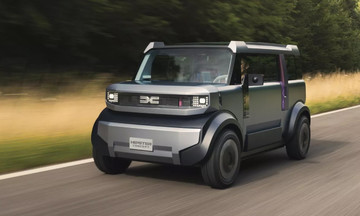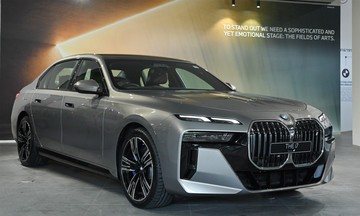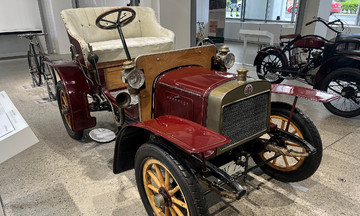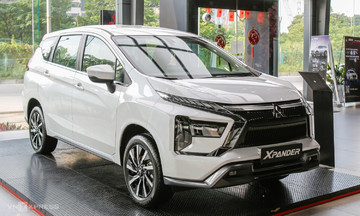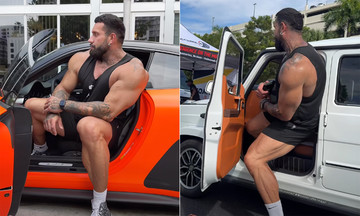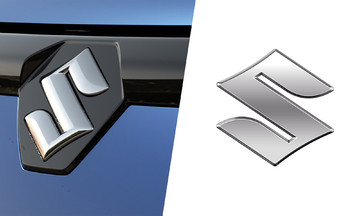Chinese and European automakers faced off at the Munich auto show, reflecting the intensifying competition in Europe. Established brands like Volkswagen are contending with electric vehicle giant BYD and emerging players such as GAC and Changan.
This year's IAA Mobility, Europe's largest biennial auto show, takes place as European automakers lose market share in China, the world's largest auto market, amid a price war some executives describe as "Darwinian."
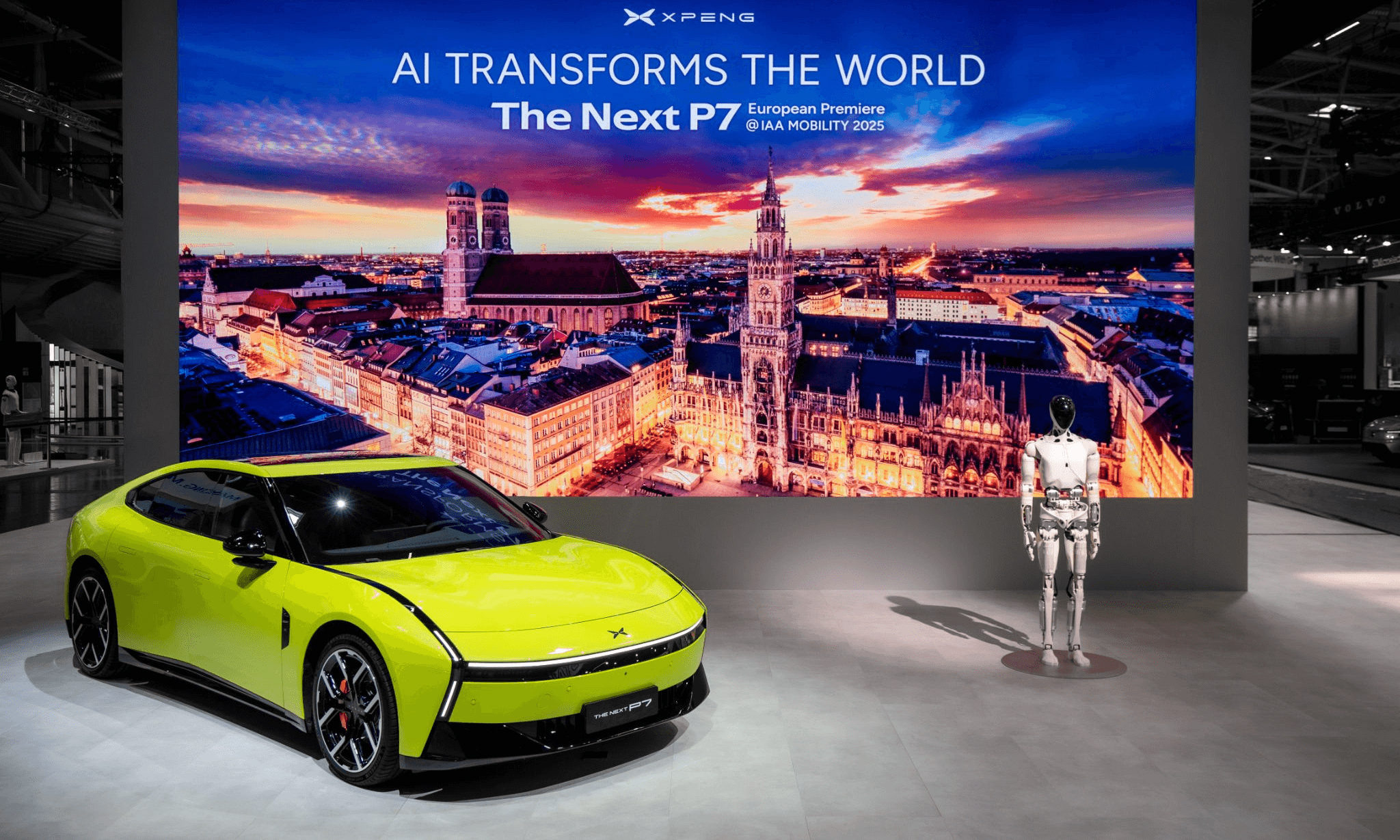 |
Chinese EV maker Xpeng announced its first European R&D center, which will open in Munich this week, marking the company's 9th facility. Photo: Xpeng |
Chinese EV maker Xpeng announced its first European R&D center, which will open in Munich this week, marking the company's 9th facility. Photo: Xpeng
Simultaneously, to alleviate domestic pressures, Chinese auto manufacturers are expanding into Europe seeking profits, particularly BYD. Its global sales surged to 4.2 million vehicles in 2024, a tenfold increase from 2019, according to Reuters.
"It's Europe versus China," said Pedro Pacheco, vice president of research at Gartner. "The Chinese are trying to grow in Europe while the Europeans are trying to push back on EVs and software."
BYD joined other Chinese brands at the Munich show, including Changan, GAC, FAW's Hongqi, and numerous others.
"China is not only back, but more present than ever," said Jan Heckman, a director at the German Association of the Automotive Industry (VDA). He added that this year's IAA Mobility saw a 40% increase in Chinese exhibitors compared to 2023.
China remains the biggest challenge for the European auto industry. According to consulting firm AlixPartners, global automakers held 62% of the Chinese market in 2020. This figure dropped to 46% in 2023 and could fall further to 28% by 2030.
According to Jato Dynamics, Chinese brands nearly doubled their European market share to 4.8% as of July this year compared to the same period in 2024. McKinsey consultants estimate that within a decade, Chinese automakers could hold a market share comparable to that of Japanese and South Korean manufacturers, currently at 14% and 9% respectively.
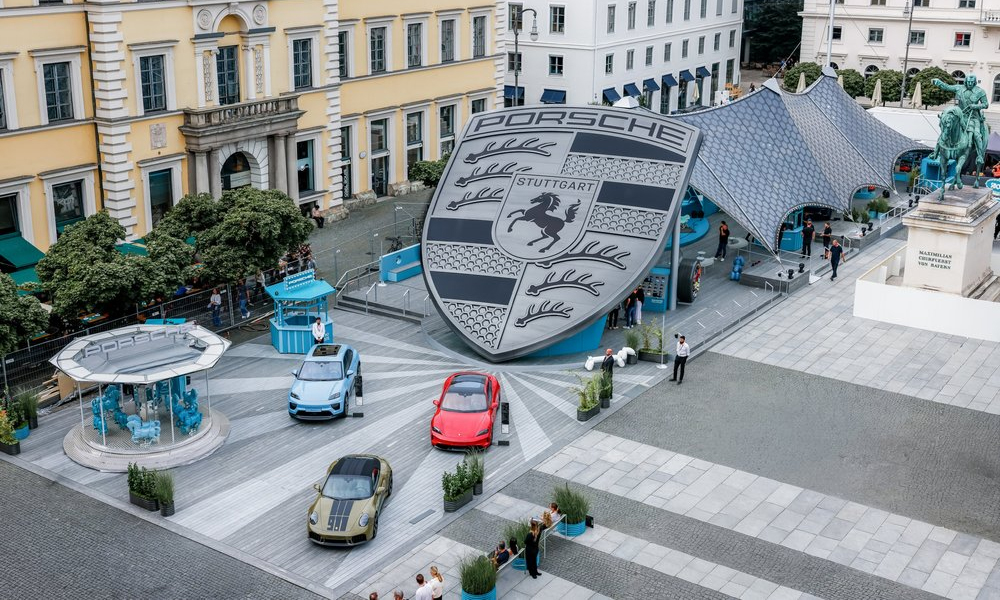 |
Porsche shines at IAA Mobility 2025 with a giant shield as a highlight and the global launch of the new 911 Turbo S. Visitors can enjoy test drives of the Taycan and Macan, and explore the new Cayenne and Taycan Black Edition. Photo: Formula Automotriz |
Porsche shines at IAA Mobility 2025 with a giant shield as a highlight and the global launch of the new 911 Turbo S. Visitors can enjoy test drives of the Taycan and Macan, and explore the new Cayenne and Taycan Black Edition. Photo: Formula Automotriz
Phil Dunne, CEO of consulting firm Stax, stated that European automakers reacted too late to this threat after years of complacency, and now, "the Chinese are here to stay."
Over 100 Chinese companies participated in IAA Mobility, spanning various sectors: fully assembled vehicles, batteries, autonomous vehicles, lidar, and smart cockpits.
Manufacturers like BYD, XPeng, and Leapmotor had sizable outdoor exhibition areas. Leapmotor globally launched the Lafa5 and debuted the B10 in Europe. The company revealed it has two stores in Munich, bringing the total across Germany to 109, according to cnautonews.
Among the exhibitors were battery companies including CATL and Gotion High-tech. In the autonomous vehicle sector, companies like Black Sesame Technologies, Horizon Robotics, and DeepRoute.ai were also present.
CATL unveiled Shenxing Pro, the world's first lithium-iron phosphate (LFP) battery that can maintain high voltage, retain energy, and avoid fire or smoke after thermal runaway.
CATL stated it has partnered with over 200 automakers globally, including long-term European partners and over 1,000 European suppliers, to promote innovation by integrating advanced battery technology into electric vehicles.
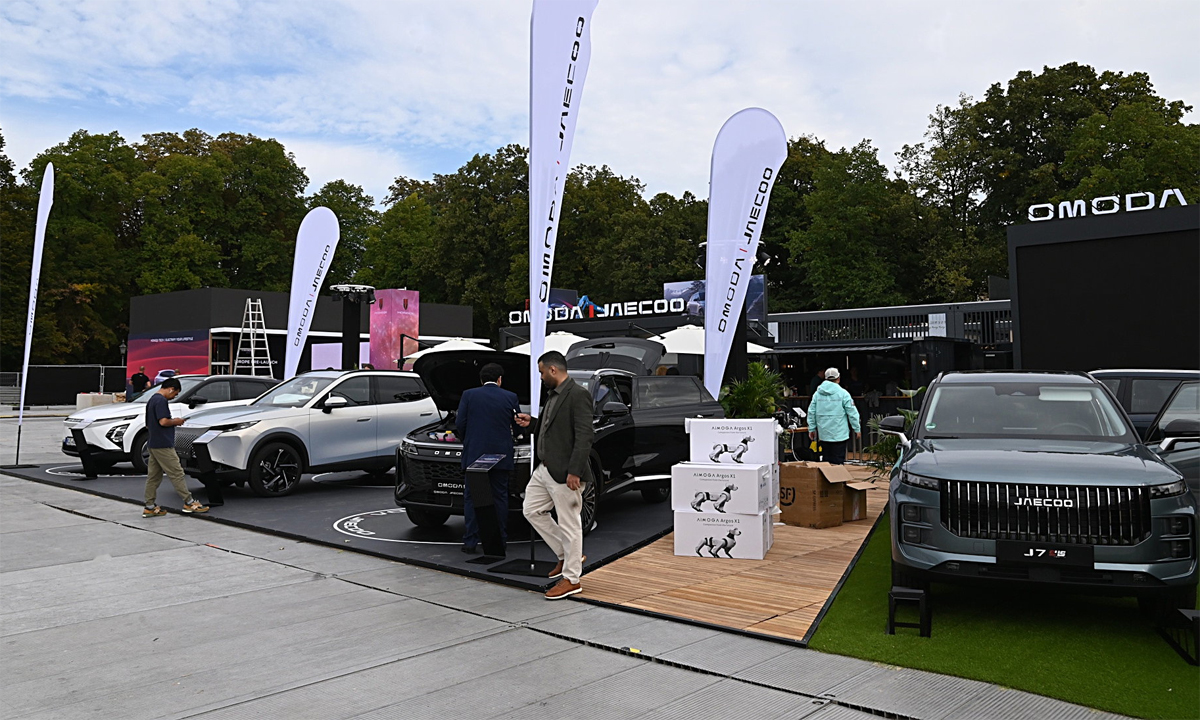 |
Omoda's booth in the outdoor area at IAA Mobility 2025. Photo: Georg Addison |
Omoda's booth in the outdoor area at IAA Mobility 2025. Photo: Georg Addison
DeepRoute.ai showcased its latest-generation driver-assistance platform, DeepRoute IO 2.0, along with its vision-language-action model. The company said it is actively expanding into key overseas markets: Europe, Japan, and South Korea.
Chinese companies are demonstrating comprehensive efforts to expand globally across the entire industrial chain, according to Wu Shuocheng, a veteran auto industry analyst, speaking to the Global Times.
In Wu's view, Chinese automakers have progressed from initially exporting products to establishing overseas production facilities and ultimately driving the expansion of the entire industrial chain globally. Wu predicts more foreign automakers will seek collaborations with Chinese auto parts manufacturers.
My Anh




